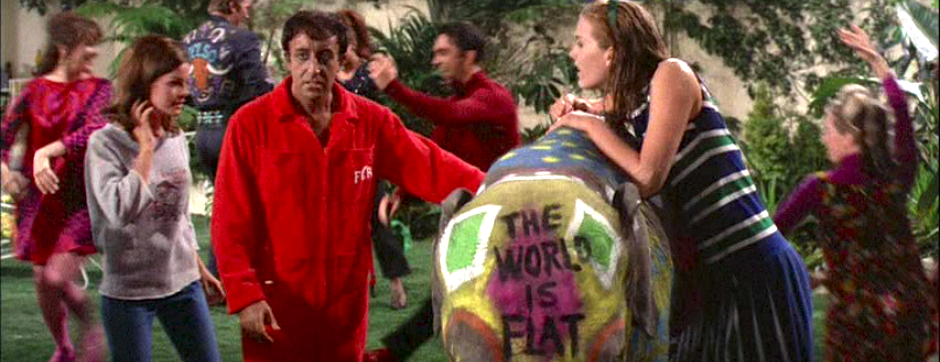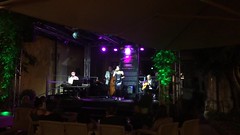Some time ago, Open Culture published an account of the famed collection of the supposed “greatest” books on which to construct a cultured education. It originated at Harvard in 1909:
Compiled by Harvard’s president Charles W. Eliot and called at first Dr. Eliot’s Five Foot Shelf, the compendium of literature, philosophy, and the sciences […] served as a “monument from a more humane and confident time” (or so its upper classes believed), and a “time capsule…. In 50 volumes.”
This guy believed that, to get a proper liberal arts education, it was sufficient to read a five-foot-long shelf of the greatest books, encompassing the Arts, Science, and Philosophy. Of course, it was an education for the “upper classes”, those who, like the ancient Greek philosophers, were “free people” and unoccupied by the vile necessities of life, and could dedicate their time to speculation, reflection, and investigation.
Today, we’re not in a so distant future from that time. We have “upper classes”, but the classes in the middle and those in the lowest echelons are far distant from the top. What does it mean, then, to be a cultured person today?
Does it mean to have read the Classics? And what are the Classics to be included in the Classics list? If we want a truly universal (western or eastern or both) list of Classics, we perhaps can come down with a better choice than Harvard’s. That list is perhaps too anglo- centric, but there is eastern philosophy, Latin and Greek works and a lot of the most important European literature (of course, no Proust or Joyce or García Lorca or Ungaretti there, but we could add them easily). Also, there is no trace of Latin America, or Africa. But I think we can come up with a five-foot-long shelf of the greatest works of (western) humankind. Perhaps, another five-foot-long shelf would add also an Eastern education. Or, a shake and mix of both shelves could produce a less biased version of a universal list.
Some may come forward and ask why, for a good education, we should read the Classics. No problem, besides Harvard (of the early 1900’s), others have put together impressive lines of thought, the most famous of which is perhaps Italo Calvino’s, who wrote “Why Read The Classics?“, where he offered 14 points. They are resumed here at Open Culture: here is Point Number 7:
7) The classics are the books that come down to us bearing upon them the traces of readings previous to ours, and bringing in their wake the traces they themselves have left on the culture or cultures they have passed through.
Luckily, thanks to the Internet and some open thinking, all the books in the Harvard Classics list are available free on the Internet Archive and Project Gutenberg.
Another compilation of similar nature (but much less ambitious) comes from physicist Neil deGrasse Tyson, who selected eight books “every intelligent person on the planet should read”, which include the Bible (“to learn that it is easier to be told by others what to think and believe than it is to think for yourself”), and –coinciding with Harvard– Darwin’s The Origin of Species (“to learn of our kinship with all other life on Earth”).
Then, there’s Teresita Fernández‘s position on the usefulness of “useless” knowledge, and the idea of “connected irrelevance”:
For some inexplicable reason, we seem to believe most strongly not in the actual formal lessons, but rather in those details that get into our heads without our knowing exactly how they got there. Those pivotal lessons in our lives continue to work on us in subtle, subterranean ways.
But also, let’s not forget getting used to and appreciate the importance of difficulty. Classics are difficult to digest, interpret and find one’s way to participate in a meaningful dialogue with them. We are allergic to difficulty, today, and we do everything to avoid our students to do real, hard, unabridged, difficult work. But Nietzsche wrote a long time ago on the importamnce of embracing difficulty –rather than running from it.
Now, I have two questions:
- Does reading the Classics (whatever your definition), really define a cultured person? Whatever your answer, does not reading two or ten books from the list make you less cultured? What other features would a well educated person need to have?
- Why our schools today do not even try to have our students read but a fraction of those books? Is the reason related to “difficulty” (for both teachers and students)?
Sadly, I don’t have an answer to these questions, only suspicions.




Roberto, I suspect you are quite right! Kipling, ah!
Love your line about how we have become “allergic to difficulty” !
I do not have an answer to your questions, either.
I do believe, however, that one must read, and not just read fun novels, but one must read (or at least be familiar with the existence of) the classics of our ancient world as well as many other important works in order to consider oneself a cultured person. The list of 8 books that Neil de Grasse Tyson proposes is magnificent! I would add to it Cervantes’ Don Quijote and Antoine de Saint Exupéry’s Le Petit Prince, to get a sense f what our priorities should be. To be truly cultured, also, one must at least try to read these works in their original language.
A truly cultured person, in my opinion, is someone who is at least familiar with a very wide range of subjects, someone who specialises in at least one branch of academics, someone who speaks several languages, and finally someone who is equally at ease in a variety of environments and circumstances. “If you can talk with crowds and keep your virtue,
Or walk with Kings—nor lose the common touch,” as Rudyard Kipling advises in his wonderful poem “If” describes this important aspect of being a cultured person, I think.
As to the reason why schools today do not include this kind of reading I’m as much at a loss to answer as you are. I think it may have to do with the pressures that our present world imposes on all of us, that emphasis on competition, production and consumption that is stripping us of our humanity. This Brave New World (another important book) of ours has no need, and even less room for those subtleties of true culture that make us human.
Anyway, that is my humble suspicion.